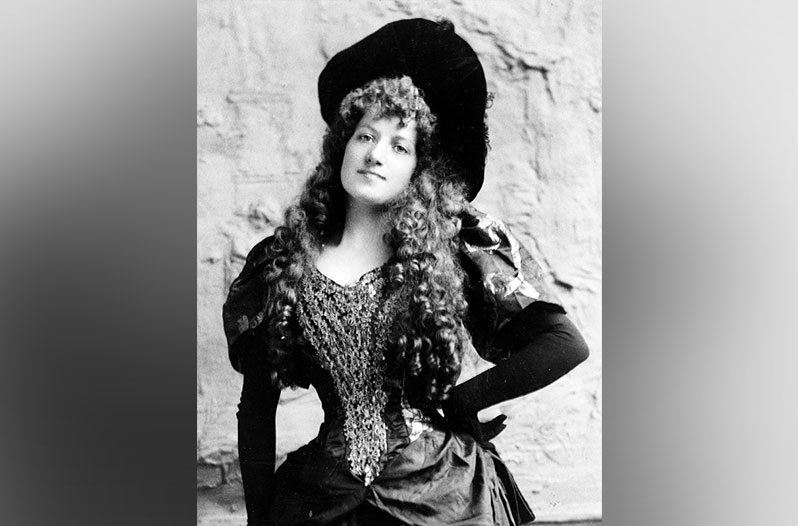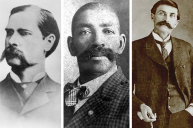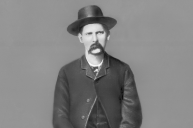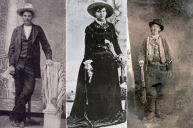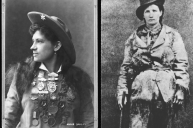When you think of the Wild West, you may think of Wild Bill Hickok and Doc Holliday gathered around card tables in dusty saloons. But among the men, there was another, lesser-known face at the table: a Southern belle turned Western card shark, Lottie Deno. Known as Mystic Maud, Queen of the Pasteboards and the Angel of San Antonio, Deno gambled her way through the west, gaining a reputation as one of the greatest card players in the region. But along with her winnings, rumors about Lottie's past followed her everywhere. But nothing -- rumors, jealous opponents or wild frontier men -- could distract Deno. Lottie just kept raking in the chips.
Videos by Wide Open Country
The Gambler
Lottie Deno was born Carlotta J. Thompkins in Warsaw, Kentucky in 1844. Her father, a gambler and racehorse breeder, taught Deno the art of gambling at a young age. After her father died in the Civil War, Deno took to gambling on riverboats along the Mississippi River. But it was in Texas that Lottie really hit her stride.
In 1865, Deno arrived in San Antonio, where she began working as a house gambler at the University Club. During her time there, Lottie met and fell in love with fellow gambler Frank Thurmond. But Thurmond often found himself on the wrong side of the law. When he was accused of murder, Thurmond split town and Deno followed. The pair gambled their way through Texas, traveling through Fort Concho, San Angelo, Denison and Fort Worth. They eventually settled in Fort Griffin, an area west of Fort Worth that was known as "the toughest town in Texas." Fort Griffin was packed with buffalo hunters, fur traders, outlaws and gunfighters -- men with lots of money and very little cares. The town was essentially a who's who of the Wild West, with legends like Wyatt Earp, Doc Holliday, Pat Garrett and John Wesley Hardin making frequent appearances. It made for the perfect gambling town and Lottie made out like a bandit. Her legend as a gambler to be reckoned with was cemented in the lawless wild west town.
Lotta Dinero
One night, after Lottie had been accused of cheating in a card game, a fellow gambler suggested she should call herself "Lotta Dinero," which she eventually shortened to Lottie Deno. Because she never used her real name to protect her family's reputation, mystery and intrigue surrounded the gambler.
Read More: This Historic Nevada Mansion Was the Dream of One of the Old West's Most Fascinating Pioneer Women
She was also known for keeping her cool in tense situations. One night when two gamblers, Monte Bill and Smokey Joe, got into a gun battle inside a saloon where Lottie was playing. The entire crowd ran out into the street in fear, while Lottie remained seated, counting her chips. When the sheriff questioned why she hadn't left, Deno replied, "You have never been a desperate woman."
After five years of cleaning out some of the most respected men in the West (rumor has it she once took Doc Holliday for $3,000), Deno left for New Mexico with Frank Thurmond. It was there that Frank Thurmond was attacked a stabbed a man in self-defense. According to most accounts, the event caused Deno to settle down and leave the gambling life. Deno helped found the St. Luke's Episcopal Church of Deming, N.M. She traded nights at the poker table with pistol-packing cowboys for quiet evenings playing bridge with the upscale ladies of the town, founding a coalition of players called the Golden Gossip Club.
Lottie Deno died February 9, 1934. She was buried next to Frank Thurmond, who passed away 26 years earlier. But her spirit lives on in the legends of the west and through countless frontier stories. Miss Kitty, the fiery saloon keeper from the 1960's television series Gunsmoke, is said to have been based on Lottie.
